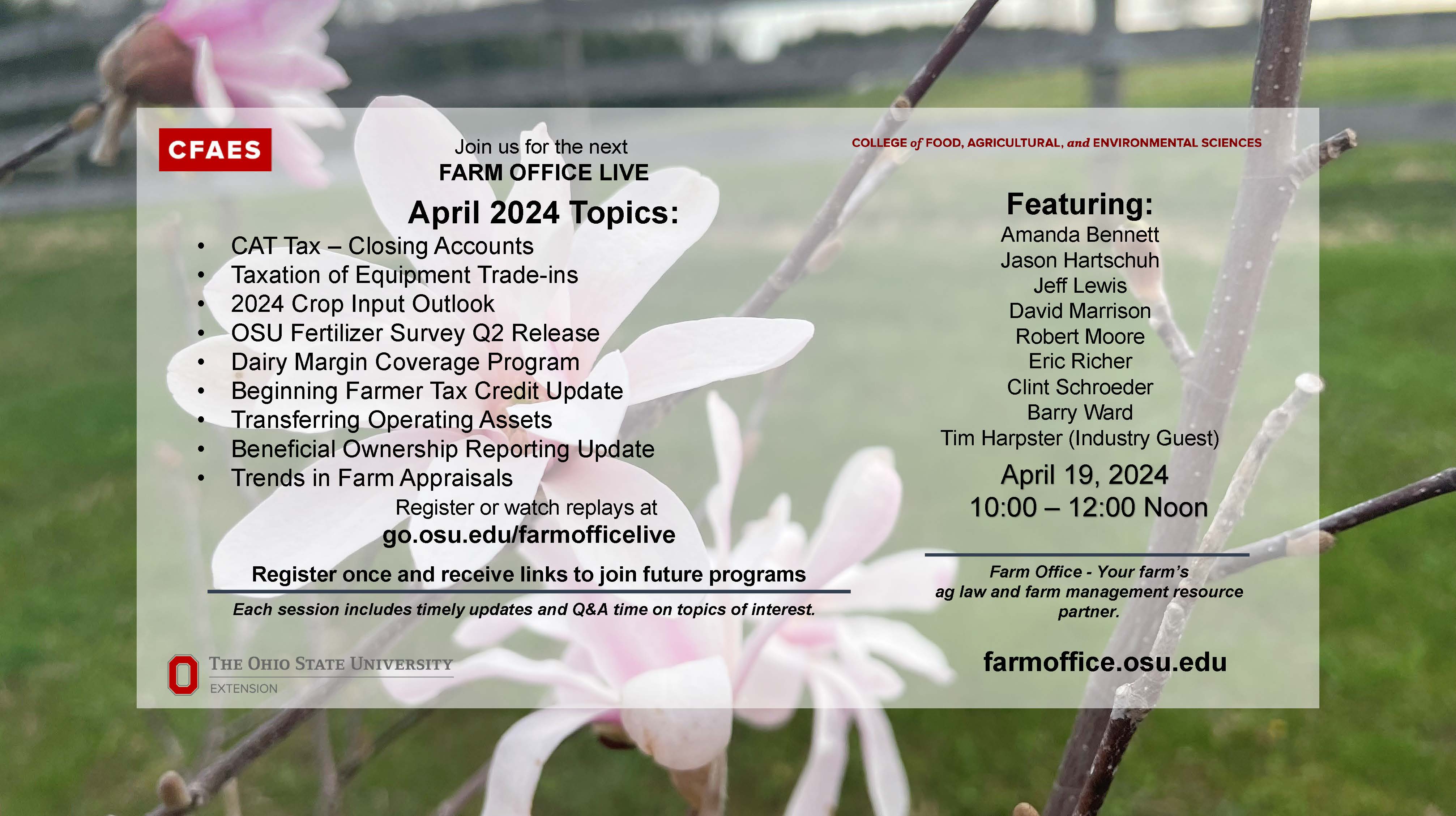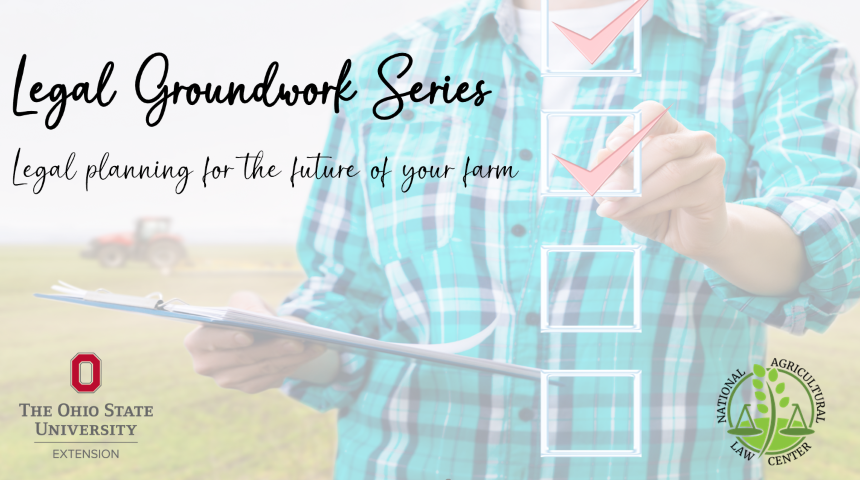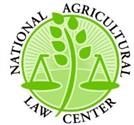Authored by Ellen Essman, CFAES Government Relations
The Ohio General Assembly is back in Columbus after the March 19th primary election, and committee schedules are already filling up. Given the increased activity in recent weeks, we thought it was a good time to examine what has happened legislatively this year up until this point.
H.B. 64—Eminent Domain. This bill was first introduced by Representatives Kick (R-Loudonville) and Creech (R-West Alexandria) in February of 2023. The bill’s purpose is to make it more difficult for governmental agencies or private entities to take private property through eminent domain. On February 6, 2024, the bill was updated with a Substitute House Bill 64 in the House Civil Justice Committee.
The previous version of the bill excluded recreational trails from the definition of “public use,” meaning that property could not be taken by a government agency for recreational trails. The current version of the bill narrows this language, allowing for a taking for the purpose of creating recreational trails, but not in cases where the property is not adjacent to a public road and where the property’s primary use will be for a recreational trail.
Another substantial change between the versions involves compensation offers from the government entity to the landowner. In the original version of the bill, a government entity would not have been allowed to reduce an offer made to purchase property before proceedings commenced if the reduction was based on hard-to-discover issues with the property. The current version would exclude this provision, restoring an agency’s authority to reduce offers.
Substitute House Bill 64 would also make changes to compensation and awards landowners could receive if the issue goes to court.
H.B. 197—Solar Development. Sponsored by Representatives Hoops (R-Napoleon) and Ray (R-Wadsworth), H.B. 197 would establish a the community solar pilot program and the solar development program. Under the language of the bill, a “community solar facility” is defined as a single facility with at least three subscribers and a nameplate capacity of 10 megawatts or less, or 20 megawatts or less if on a distressed site. Furthermore, the bill would require The Public Utilities Commission of Ohio (PUCO) to establish a Community Solar Pilot Program of 250 megawatts on sites in the Appalachian region of the state. The bill would also amend the state competitive retail electric service policy to encourage community solar facilities in the state and allow subscribers to community solar facilities to receive monthly electric bill offsets.
H.B. 324—Motor Fuel. Introduced by Representatives McClain (R-Upper Sandusky) and Klopfenstein (R-Haviland) in November of 2023, H.B. 324 passed the House on February 7, 2024 and was referred to the Senate Ways and Means Committee on February 27.
If passed, the bill would authorize a temporary, nonrefundable income or CAT tax credit of 5 cents per gallon for retail dealers who sell high-ethanol blend motor fuel containing between 15-85% ethanol. The tax credit would be limited to five years or to a total of $10 million, whichever occurs first.
H.B. 327—Employee Verification. H.B. 327, introduced by Representatives Wiggam (R-Wayne County), and Swearingen (R-Huron), had its first committee hearing in House Commerce & Labor on February 13, 2024. The bill would require political subdivisions, private employers employing 75 individuals within the state of Ohio, and nonresidential construction contractors to verify each new employee’s work eligibility through the federal E-verify program. E-Verify is an online program that helps employers verify employees’ eligibility for employment. If the bill were to pass, the employer would be required to keep a record of the verification for the duration of the employee’s employment, or three years, whichever is longer. During testimony on the bill, Representatives Wiggam and Swearingen indicated an interest in possibly lowering the employee threshold, citing Florida’s 25 employee threshold.
H.B. 347—Farming Equipment Taxes. This bill was introduced by Representative Don Jones (R-Freeport) and referred to the House Ways and Means Committee in early December of 2023. Since then, the bill has been heard in committee twice, once in January, and once in February, both times without testimony. The bill would change the way farmers claim a tax exemption on certain purchases.
Currently, when an Ohioan engaged in farming, agriculture, horticulture, or floriculture is buying a product for “agricultural use,” they must provide the seller with an exemption certificate. This certificate comes from the Ohio Department of Taxation and relieves the seller of the obligation to collect the sales tax on behalf of the state. However, the Department of Taxation can later determine that the purchase does not qualify for exemption, and then the farmer would be expected to pay the tax.
H.B. 347 would slightly alter this current way of doing things when it comes to the purchase of certain vehicles and trailers. Under the bill, the purchaser could receive an agricultural use exemption for taxes on these vehicles if the purchaser shows the seller copies of the purchaser’s Schedule F—the federal income tax profit of loss from farming form—for three most recent preceding years. Alternatively, a farmer could obtain a certificate from the Department of Taxation verifying that they have filed a Schedule F for three years in lieu of providing the forms directly to the seller. Notably, the bill states that “no other documentation or explanation shall be required by the vendor or the tax commissioner” to prove that the purchase qualifies for the agricultural use exemption.
The following vehicles and trailers would be included under the bill:
- Trailers, excluding watercraft trailers;
- Utility vehicles, (vehicles with a bed, principally for the purpose of transporting material or cargo in connection with construction, agricultural, forestry, grounds maintenance, land and garden, materials handling, or similar activities);
- All-purpose vehicles, (vehicles designed primarily for cross-country travel on land and water, or on multiple types of terrain, but excluding golf carts);
- Compact tractors (garden tractors, small utility tractors, and riding mowers).
H.B. 364—Seed Labeling; Noxious Weeds. Sponsored by Representatives Dobos (R-Columbus), and Klopfenstein (R-Haviland), H.B. 364 had its first hearing in the House Agriculture Committee on February 6, 2024. Specifically, the bill would allow the Ohio Prairie Association and other noncommercial entities sharing seeds to distribute milkweed seeds non-commercially to i members, with the intent of promoting habitats for pollinators like monarch butterflies.
The bill would legally define “non-commercial seed sharing” as the distribution or transfer of ownership of seeds with no compensation or remuneration. Also included in the definition are a list of situations that are not considered “non-commercial seed sharing,” including when:
- The seeds are given as compensation of work or services rendered;
- The seeds are collected outside of Ohio;
- The seeds are patented, treated, or contain noxious weed species or invasive plants.
H.B. 364 also includes a definition of “seed library,” which it defines as a non-profit, governmental, or cooperative organization or association to which both of the following apply:
- It is established for the purpose of facilitating the donation, exchange, preservation, and dissemination of seeds among the seed library’s members or the general public.
- The use, exchange, transfer, or possession of seeds acquired by or from the non-profit governmental, or cooperative organization or association are obtained free of charge.
The bill would further exempt non-commercial seed sharers and seed libraries from labeling, advertising, handling, and sales restrictions under Ohio law.
To further the goal of promoting pollinators and habitats, H.B. 364 would make changes to the requirements for maintaining toll roads, railroads, or electric railways. Current law requires managers of such thoroughfares to destroy a number of noxious weeds along the roadway or in right of ways. The bill would no longer require the destruction of Russian thistle, Canadian thistle, common thistle, wild lettuce, wild mustard, wild parsnip, ragweed, milkweed, or ironweed.
H.B. 447—Property Tax. Introduced on March 12, 2024 by Representative Loychik (R-Cortland), H.B. 447 was referred to the House Ways & Means Committee on April 2, 2024. The bill would modify and expand property tax homestead exemptions, gradually reduce school districts’ 20-mill floor for tax levies and modify the formula for determining farmland’s current agricultural use value (CAUV). The change to CAUV would involve the calculation of the overall capitalization rate for agricultural land. Current law does not establish a minimum rate, but the bill would do so by stating that overall capitalization rate plus additur shall not be less than 10 percent. Since a higher capitalization rate results in a lower CAUV value and because the current capitalization rate is around 8%, the change would likely lower CAUV values.
S.B. 156—Scenic Rivers. This bill, sponsored by Senators Reineke (R-Tiffin) and Hackett (R-London) passed the Ohio Senate on January 24, 2024, and was referred in the House to the Energy and Natural Resources Committee on February 6, 2024. The bill would transfer the Wild, Scenic, and Recreational Rivers Program from the Division of Parks and Watercraft to the Division of Natural Areas and Preserves (DNAP) in ODNR. The bill would narrow the scope DNAP’s authority to watercourses designated as wild, scenic, and recreational rivers. Currently, the law is written so that the regulatory agency has authority over areas. “Areas” encompass not just the water, but also the land surrounding rivers. On the other hand, “watercourses” are defined as “substantially natural channel[s] that [are] at least five miles in length with recognized banks and a bottom in which the flow or water occurs.” Thus, agency oversight would be diminished from the river and its surrounding area to just confines of the river itself.
The bill also clarifies that a watercourse designation does not affect private property rights adjacent to a designated river.
Finally, the bill would require DNAP to adopt rules for the use, visitation, and protection of scenic river lands and provide for the establishment of facilities and improvements that are necessary for their visitation, use, restoration, and protection, but do not impair their natural character.
S.B. 226—Agricultural Land. S.B. 226 was introduced by Senator Terry Johnson (R-McDermott) in late February and referred to the Veterans & Public Safety Committee on February 27, 2024. The bill would create the Ohio Property Protection Act, which would include protection of:
- Agricultural land, defined as “land suitable for use in agriculture,” including the water on the land, airspace above the land, and natural products and products from the land;
- Any land located within a twenty-five-mile radius of any installation under the jurisdiction of the United States Armed Forces;
- Any land located within a twenty-five radius of a critical infrastructure facility.
To protect property in the above categories, the bill would make it illegal for the following people and entities to acquire or purchase such property:
- Those persons and foreign adversaries listed on a registry compiled by the Ohio Secretary of State;
- A government of a foreign adversary;
- An individual who is a citizen of a foreign adversary;
- A business that is headquartered in a foreign adversary;
- A business that is directly or indirectly owned or controlled by one or more of the above persons and entities; and
- An agent, fiduciary, or trustee of the above persons and entities.






